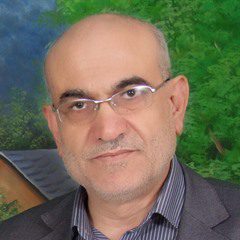It has become a tradition amongst American presidents to begin their period of office by visiting Israel, especially over the past three decades during which time the Israel Lobby has clearly taken control of American politics. Democratic or Republican, it would be exceptional to see any American president ever depart from this rule.
So is Barack Obama exceptional? He has waited until the start of his second term before making the political pilgrimage to Israel but little is expected of him. Hence, to say that a US President is less prone to Israel Lobby pressures during his second term would not be entirely accurate. The Lobby can pursue him in different ways and stir up a lot of trouble for his party, something that no incumbent would wish on his successor.
As such, we can say that Obama is visiting Israel to ask for approval for the Lobby’s paymasters in Tel Aviv, not to dictate terms and conditions on a country in receipt of more foreign aid from America than any other in history, despite the obvious leverage that such largesse gives him. Clearly, Obama understands that Benjamin Netanyahu has more supporters in the US Congress than the US President has, and there is no need to create problems for himself.
According to New York Times columnist Thomas L Friedman, Obama will thus be the first US President to visit Israel “as a tourist and not as a peace mediator”, which lowers the expectations of this trip.
He will visit the Holocaust Museum and cry over the Nazis’ victims. He will most likely visit the Al-Buraq or “Wailing” Wall and might even place a prayer note in it and wear a kippah to be polite to his Jewish hosts. His visit to Ramallah will not create tension for the Israelis, even though it has been said that it might be cancelled in exchange for not visiting the Knesset; the satisfaction of the Palestinian Authority officials with their state under occupation is an Israeli objective. The creation of this state built on Israeli specifications is enough to diminish the possibility of a third Intifada. An uprising haunts security and political officials, not to mention Israeli society which has been living in security for years due to the PA’s security collaboration with the occupation authorities.
Will Obama try to be a peace mediator during his visit? This may be difficult, given that Obama’s previous insistence on a settlement freeze for peace talks to resume was at odds with Mahmoud Abbas’s own list of priorities. The PA President negotiated with ex-Prime Minister Ehud Olmert for 3 years while Israeli bulldozers took over the West Bank and strengthened the Judaisation of Jerusalem with more illegal settlements.
Despite this, Obama will do the Israelis a big favour if he convinces Abbas to return to the negotiating table, which may occur with creative solutions that do not mean giving in to a settlement freeze. Even though negotiations will not be “final status” as everyone, including Obama’s advisors and supporters, has realised, what is available is a long-term transitory solution, which means a temporary state built on what is left of the West Bank beyond the Apartheid Wall. Naturally, this state will not rest easy, as it will have to go through a number of phases if the Palestinians are able to prove that they are capable of being “good neighbours” to Israel.
It is expected that Obama will discuss the situation in Syria with Netanyahu and his government now that it appears that Washington is no longer opposed to Assad staying in power due to the possibly unacceptable nature of the alternative. The only remaining concern appears to be the fate of Syria’s chemical weapons, missile platforms and anti-aircraft missiles should the regime fall.
What about Iran? According to Yedioth Ahronoth newspaper, Obama will urge Netanyahu not to take military action against Iran before Tehran’s presidential elections in June. He probably realises that the option of taking military action is not really viable at the moment, but it is still used as a threat to impose sanctions that will, it seems, force Iran’s leaders to swallow their pride and abandon their nuclear dream in return for lifting them.
All that is left to say is that the Palestinian people have not and will not count on Obama’s visit nor, indeed, the courtesy of the Europeans; the Palestinians understand that the ceiling of expectations is put in place by Netanyahu and his supporters. However, their desire for an Intifada is still facing PA obstructions imposed at the behest of the Israeli occupation authorities. The question is simple: how long will these measures succeed in preventing the outbreak of the uprising?
The views expressed in this article belong to the author and do not necessarily reflect the editorial policy of Middle East Monitor.








